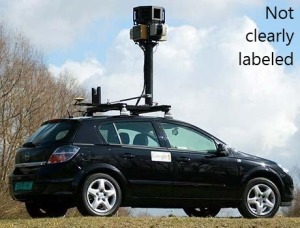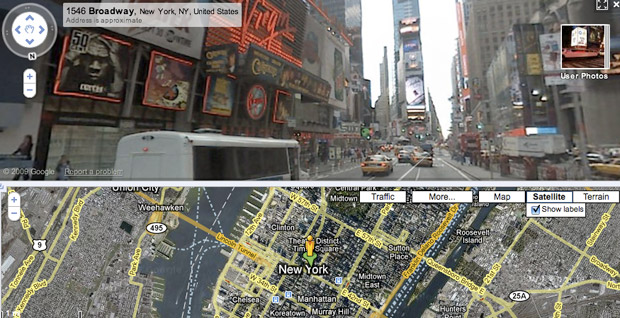 Parts of Europe have been, for whatever reason, more wary of Google’s Street View service than others. The occasional lawsuit hasn’t prevented the march of progress, though Italy’s new regulations may cause more of a hassle than the occasional grumpy homeowner. The Privacy Authority President, Francesco Pizzetti, described the outrage:
Parts of Europe have been, for whatever reason, more wary of Google’s Street View service than others. The occasional lawsuit hasn’t prevented the march of progress, though Italy’s new regulations may cause more of a hassle than the occasional grumpy homeowner. The Privacy Authority President, Francesco Pizzetti, described the outrage:
There has been strong alarm and also hostility in a lot of European countries against Google taking photos. We have received protests even from local administrations.
Odd that a country so heavily invested in their tourist industry, which consists largely of foreign people taking millions of photos of the country’s most precious possessions, would take issue with the far more systematic and predictable Street View operations. Considering their handling of that other incident, it seems that perhaps the Italian government is simply not equipped to deal progressively with the implications and consequences of the internet and Google in particular.
But I digress. The new regulations require that the Street View vehicles be clearly labeled — in addition to the enormous camera apparatus protruding from the roof, I suppose. Google will also be required to advertise the route its cars are expected to take in both newspaper and radio spots, three days before they embark.

I’d like to say these new regulations are absurd and it’s a public street, etc., but the truth is they’re just implementing basic standards for public, organized shooting events like those we have in place for movies and news reports. Individuals are impossible to regulate, and so the tourism authority doesn’t require you to sign away the rights to your photos or announce your itinerary publicly when you come to Italy. Besides, even if you were to accidentally or purposefully violate someone’s privacy, as you are apparently doing when you take a picture including strangers’ faces, locations, and license plates, these pictures are for personal use only. No sense regulating that.
But in the US, we have plenty of laws governing this kind of large-scale operation: privacy laws pioneered in the early and mid 20th century, governing implied consent, signage, permits, and so on. If you live in LA or New York, you’ve probably seen notices like this or people holding signs saying “Live cameras” near news reporters. Italy has these as well, and seems to simply be classifying Google as more similar to a film studio than an individual, which, as inaccurate as that still is, probably is better than the alternative.
So the issue isn’t so much the regulations, which are fairish and which will necessarily vary from country to country, but rather the way in which the whole issue is being cast. I think it would have been a better approach for the Italian government to make this a friendly agreement rather than demonize Google. By framing it the way they did, with Google the aggressor and the poor Italian citizen the victim, they’re making the debate harder than it has to be. If such an important and influential power as Google is doing things counter to the way Italian privacy authorities would like them to be done, I have no doubt that Google would have met them more than halfway. A joint press conference, explaining the legal limitations on Google and the steps Google takes to cover up your license, face, whale tail, etc., would go a long way toward improving public perceptions of the controversial and (to some) creepy service.
[via SlashGear]